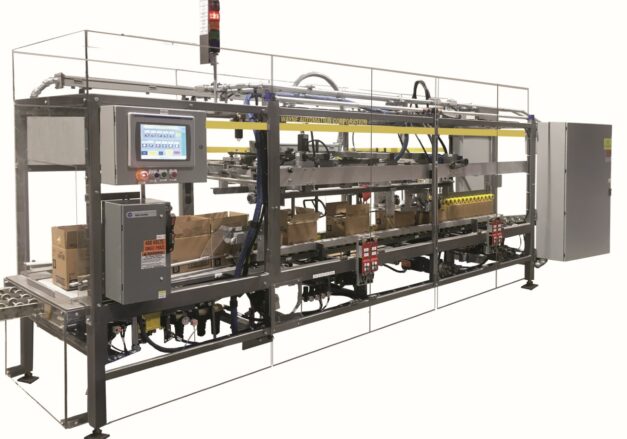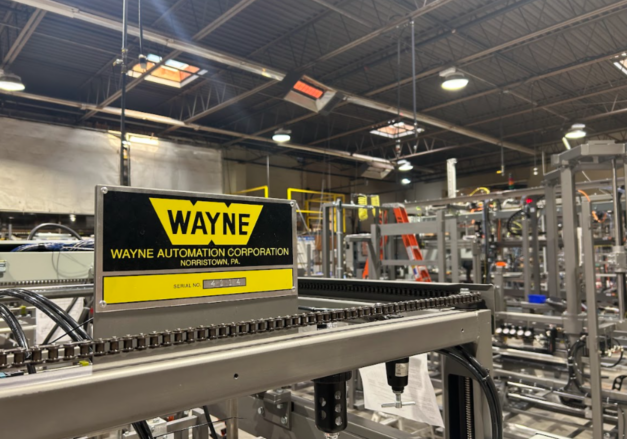Sustainable Packaging Trends: Shaping the Future of Packaging
In today’s rapidly evolving business landscape, sustainability has become a top priority for consumers and businesses alike. As a result, sustainable packaging is at the forefront of innovation in the packaging industry.
The ongoing shift toward sustainable packaging isn’t just a trend, but a necessary response to the global environmental crisis. Here, we explore the latest sustainable packaging trends and their potential impact on your packaging line.
Demand for Eco-Friendly Materials
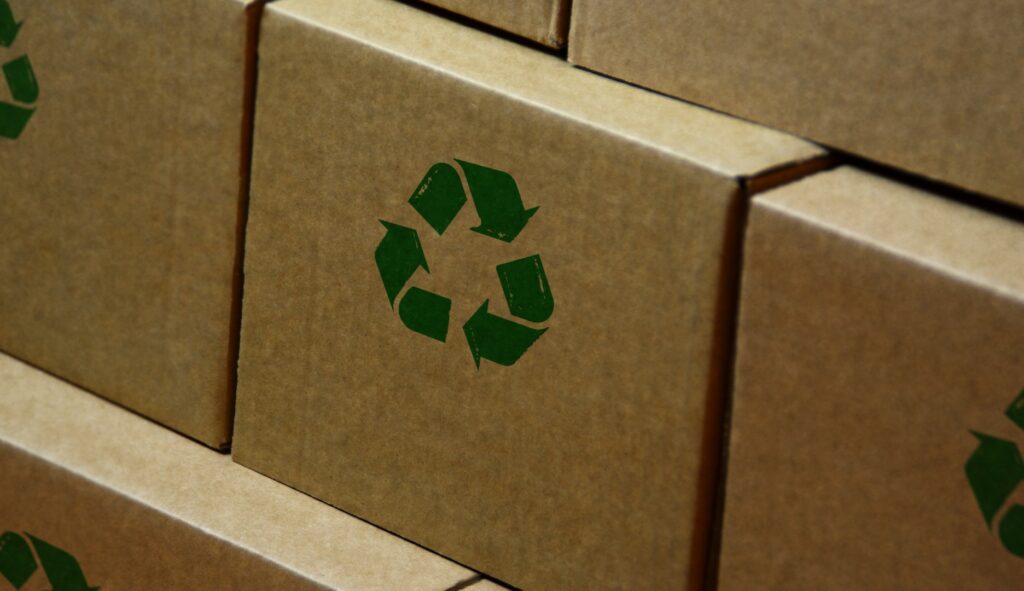 One of the most prominent sustainable packaging trends is the increasing demand for eco-friendly materials. Traditional packaging materials like plastic and Styrofoam can have a detrimental impact on the environment, leading to pollution and contributing to the global plastic crisis.
One of the most prominent sustainable packaging trends is the increasing demand for eco-friendly materials. Traditional packaging materials like plastic and Styrofoam can have a detrimental impact on the environment, leading to pollution and contributing to the global plastic crisis.
As a result, there’s a growing consumer preference for packaging made from biodegradable, compostable, or recyclable materials. This trend has led to a surge in the use of materials such as bioplastics, recycled paper, and plant-based alternatives, which are renewable and have a lower environmental impact.
The Impact: This trend is reshaping the packaging industry by encouraging companies to reconsider their material choices. Manufacturers are now investing in research and development to find sustainable alternatives to traditional packaging materials. Packaging suppliers are also expanding their product offerings to include a wider range of eco-friendly and recycled materials, catering to the increasing demand for sustainable packaging solutions.
Minimalist Design and Lightweight Packaging
Another significant trend in sustainable packaging is the shift toward minimalist design and lightweight packaging. Consumer awareness of excessive packaging waste has prompted brands to rethink their approach to packaging design, favoring minimalistic, functional designs that use fewer materials.
Lightweight packaging helps companies conserve resources and lowers transportation costs and energy consumption throughout the supply chain, which means businesses can reduce their carbon footprint by using less packaging and lighter materials.
The Impact: This trend is influencing the entire packaging line by driving innovation in design and materials. Packaging engineers are exploring new ways to reduce material usage without compromising product protection or consumer appeal. In response to this trend, machinery and equipment manufacturers are developing advanced technologies to produce lightweight, sustainable packaging that meets the performance requirements of the product.
Circular Economy and Recyclability
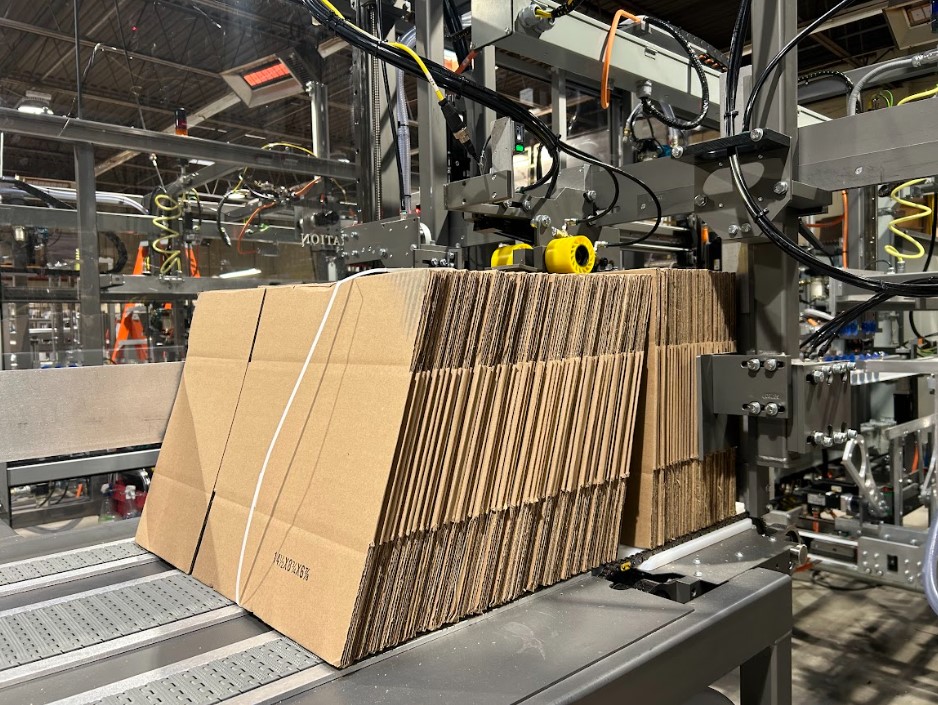 The concept of the circular economy has gained traction within the packaging industry. A circular economy keeps materials in use for as long as possible and reuses materials to minimize waste. This means reducing or eliminating single-use plastics, which often end up in waterways or landfills and affect wildlife, the environment, and human health.
The concept of the circular economy has gained traction within the packaging industry. A circular economy keeps materials in use for as long as possible and reuses materials to minimize waste. This means reducing or eliminating single-use plastics, which often end up in waterways or landfills and affect wildlife, the environment, and human health.
Recyclability has become a key consideration in packaging sustainability, as companies aim to create packaging that can be easily recycled and reprocessed into new products. This trend has led to a focus on designing packaging for recycling, utilizing mono-materials, and improving the recyclability of multi-layered packaging.
The Impact: The shift toward a circular economy and recyclable packaging has implications for the entire packaging line, influencing material selection, manufacturing processes, and end-of-life considerations. Manufacturers are redesigning their packaging to facilitate recycling, and are working closely with recycling facilities to ensure the compatibility of packaging materials with existing recycling infrastructure. The push for recyclable packaging is also driving investment in recycling technologies and infrastructure to close the loop on packaging waste and create sustainable solutions.
Embracing Sustainable Practices and Certifications
Businesses are increasingly embracing sustainable practices and seeking certifications that validate their commitment to environmentally responsible packaging.
From using renewable energy in manufacturing facilities to obtaining certifications such as FSC (Forest Stewardship Council) and BPI (Biodegradable Products Institute), companies are proactively demonstrating their dedication to sustainability.
This trend extends beyond the packaging itself and encompasses the entire production process, supply chain, and corporate responsibility.
The Impact: Adopting sustainable practices and certifications is reshaping the entire packaging line by influencing supplier relationships, production processes, and corporate strategies. Businesses are collaborating with suppliers that share their sustainability goals and seeking innovative solutions and sustainable materials to reduce the environmental impact of their packaging. Furthermore, the emphasis on sustainable practices is inspiring a cultural shift within organizations, driving continuous improvement and accountability in their approach to packaging sustainability.
Contact Wayne Automation to Discuss Your Materials and Packaging Line
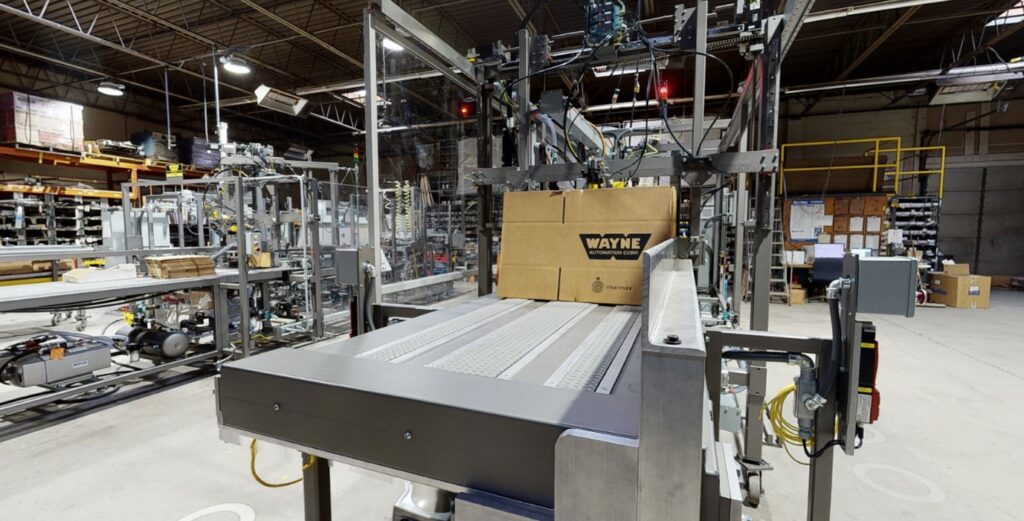 Sustainable packaging trends are reshaping the packaging industry and prompting companies to rethink their approach to packaging innovation.
Sustainable packaging trends are reshaping the packaging industry and prompting companies to rethink their approach to packaging innovation.
As sustainable packaging materials continue to gain momentum, it’s essential for businesses to adapt to these trends, prioritize sustainability, and collaborate with partners across the supply chain to create a more environmentally responsible packaging ecosystem. Ultimately, sustainable packaging is not just a trend but a fundamental shift shaping the future of packaging.
No matter what packaging materials you’re using, Wayne Automation has the automated packaging equipment to help you optimize your process and meet demand. Contact us today to discuss your packaging automation options and be part of a sustainable future!
